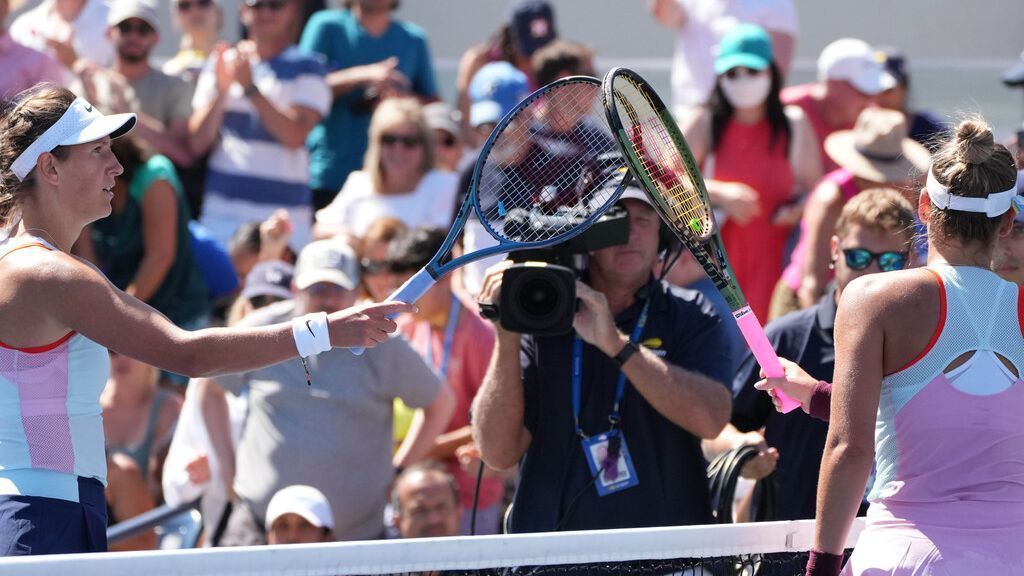Products You May Like
NEW YORK — After her straight set loss to former World No. 1 Victoria Azarenka, Ukraine’s Marta Kostyuk refused to shake hands with her Belarusian opponent. Instead, she raised her racket for a quick tap.
Kostyuk, who has been vocal about her unhappiness about Russian and Belarusian players’ silence on the tour, said it was not appropriate to shake hands with Azarenka at the news conference after the match.
“It was my choice — I don’t feel like I don’t know any single person who condemned the war publicly, and the actions of their government, so I don’t feel like I can support this,” she told ESPN.
“Don’t get me wrong, she’s a great competitor. But, it has nothing to do with her being a human being,” Kostyuk added.
After the Citi Open in Washington D.C., Ukrainian player Dayana Yastremska also refused to shake hands with Azarenka after the match. Yastremska fled Ukraine with her younger sister days after the Russian invasion began in February.
Belarus has been sanctioned by the United States for its “support” and “facilitation” of the invasion.
Kostyuk said that Azarenka has not reached out to her to have a conversation since the beginning of the war. Kostyuk said given Azarenka’s reach both in Belarus and as a part of the WTA’s Players’ Council, she should use her voice to condemn the war.
Kostyuk also said she had texted Azarenka yesterday after her practice session to “warn her” that she will not shake hands with her after the match today. Kostyuk also said she wanted to have a broader conversation with Azarenka on the war and hear her thoughts on where the Belarusian stood. Kostyuk said Azarenka responded that she was not on site, and so they did not have the conversation.
Azarenka was removed from last week’s USTA’s Peace for Ukraine event — a humanitarian event to raise funds for Ukraine — after Kostyuk expressed her discomfort with Azarenka’s participation in an interview with Ukrainian outlet BTU. Kostyuk said she refused to participate in the event as a result.
“Imagine there is World War II and there is a fundraiser for Jewish people and a German player wants to play,” Kostyuk said of her decision following Thursday’s match.
Immediately following Kostyuk’s news conference, Azarenka told reporters that she had reached out via the WTA to have conversations with Ukrainian athletes in the past few months.
“I’ve been told it’s not a good time,” she said.
Azarenka added that she didn’t have a close relationship with Kostyuk, and has never had a conversation with her, but has reached out to other Ukrainian players to listen and build relationships with them and would be willing to have a face-to-face with Kostyuk.
“I’m open to any time to listen, to try to understand, to sympathize. I believe that empathy in the moment like this is really important, which has, again, been my clear message in the beginning,” she said.
Regarding the Peace for Ukraine fundraiser event, Azarenka said she was asked to participate in it and immediately agreed to do it, as “it’s a no-brainer for me. Like, why wouldn’t I participate in a humanitarian aid for people who are really struggling right now,” she said.
“I thought that this was a gesture that really shows commitment,” Azarenka said. “I’m not sure why it wasn’t taken it that way.”
Azarenka also said that she has had a clear message from the beginning of the war.
“I’m here to try to help, which I have done a lot. Maybe not something that people see. And that’s not what I do it for. I do it for people who [are] in need, juniors who need clothes, other people who need money or other people who needed transportation or whatever. That’s what is important to me, to help people are in need.”
